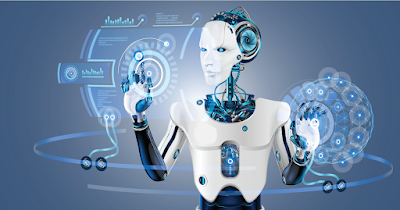"Unlocking the Power of AI: ChatGPT Leading the Way"
Here are some possible future developments in AI and Chatbots:
Natural Language Processing (NLP) is a critical component of AI technology that enables chatbots like ChatGPT to understand and interpret human language. As AI models continue to advance, they will become more sophisticated and capable of handling more complex language tasks, allowing chatbots to engage in more natural and human-like conversations with user Improved NLP will enable chatbots to better understand the context of a conversation, including the tone, sentiment, and intent behind a user's message. This will enable chatbots to provide more accurate and relevant responses, creating a more personalized and engaging user experience. One of the key advancements in NLP is the use of machine learning algorithms, such as deep learning, which allow AI models to learn from vast amounts of data and improve their performance over time. These algorithms enable chatbots to adapt to new situations, recognize patterns, and make more accurate predictions, improving the overall quality of the conversation. Another area of improvement in NLP is the use of natural language generation (NLG), which allows chatbots to generate responses that are more natural and human-like. NLG uses algorithms to create sentences and paragraphs that mimic the style and tone of human language, creating a more engaging and personalized conversation. As AI models continue to evolve, we can expect chatbots to become even better at understanding and interpreting natural language. They will be able to recognize and respond to a broader range of queries, including complex sentences and questions with multiple clauses. Chatbots will also be able to recognize and respond to idiomatic expressions, metaphors, and other figures of speech, creating a more natural and intuitive conversation.
Integration with Other Technologies: As AI technology continues to advance, chatbots will become increasingly integrated with other technologies such as virtual reality (VR), augmented reality (AR), and the internet of things (IoT). This integration will enable chatbots to provide more context-aware responses and help users in more varied and complex scenarios. For example, a chatbot integrated with AR could provide users with information about their surroundings or help them navigate a new environment. Similarly, a chatbot integrated with IoT devices could assist with home automation tasks or provide personalized recommendations based on data from connected devices. Overall, this integration will allow chatbots to provide more useful and personalized services, creating a more seamless and integrated user experience.
Increased Automation: Chatbots will continue to play an important role in automating tasks and processes, allowing businesses to increase their efficiency and productivity. As AI technology advances, chatbots will become more sophisticated, capable of handling a wide range of tasks and interacting with users in more natural and human-like ways. This will enable businesses to automate more customer service tasks, such as answering common inquiries or processing routine transactions, freeing up human resources for more complex and creative work. Ultimately, this will help businesses increase their bottom line while still providing excellent customer service, creating a more seamless and efficient experience for both employees and customers.
Improved Emotional Intelligence: As AI technology continues to evolve, chatbots will become more emotionally intelligent, able to interpret and respond to human emotions in more nuanced and empathetic ways. This will enable chatbots to provide more personalized support to users, helping to create a more positive and engaging user experience. For example, a chatbot that can detect when a user is frustrated or upset could offer more empathetic responses or provide resources to help them calm down. Similarly, a chatbot that can recognize a user's preferences or emotional state could provide more personalized recommendations or assistance. Overall, improved emotional intelligence in chatbots will help to create more meaningful and authentic interactions between users and businesses, leading to greater satisfaction and loyalty.
Overall, the future of AI and Chatbots is exciting, and the possibilities for their use in various fields are vast. ChatGPT and other advanced Chatbots are just the beginning of what is possible with AI, and we can expect to see many more advancements in this area in the years to come.








Comments
Post a Comment